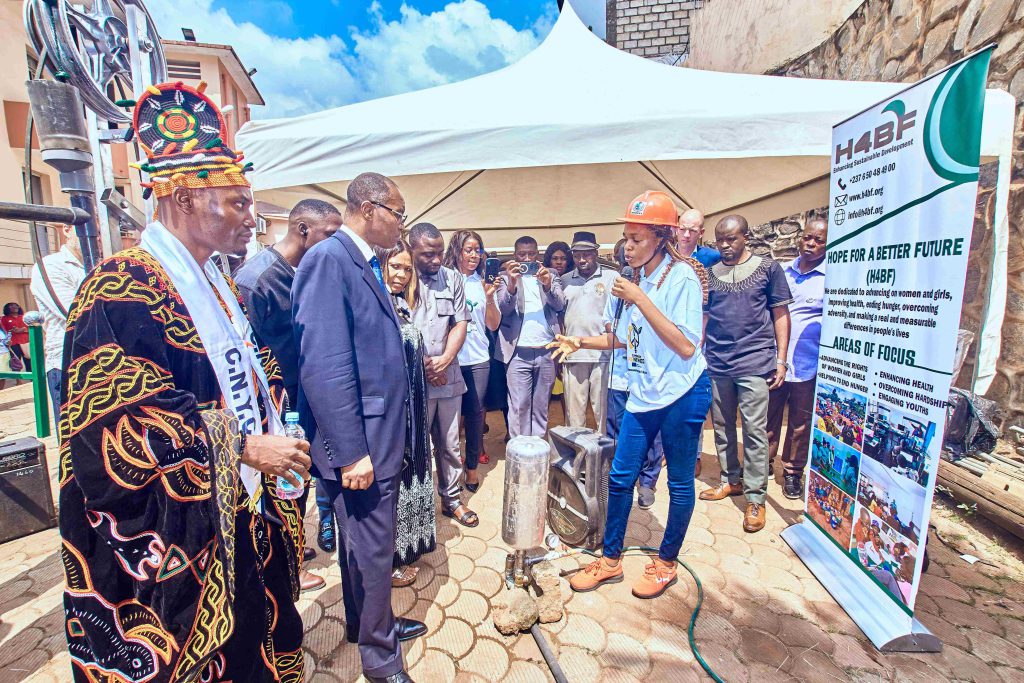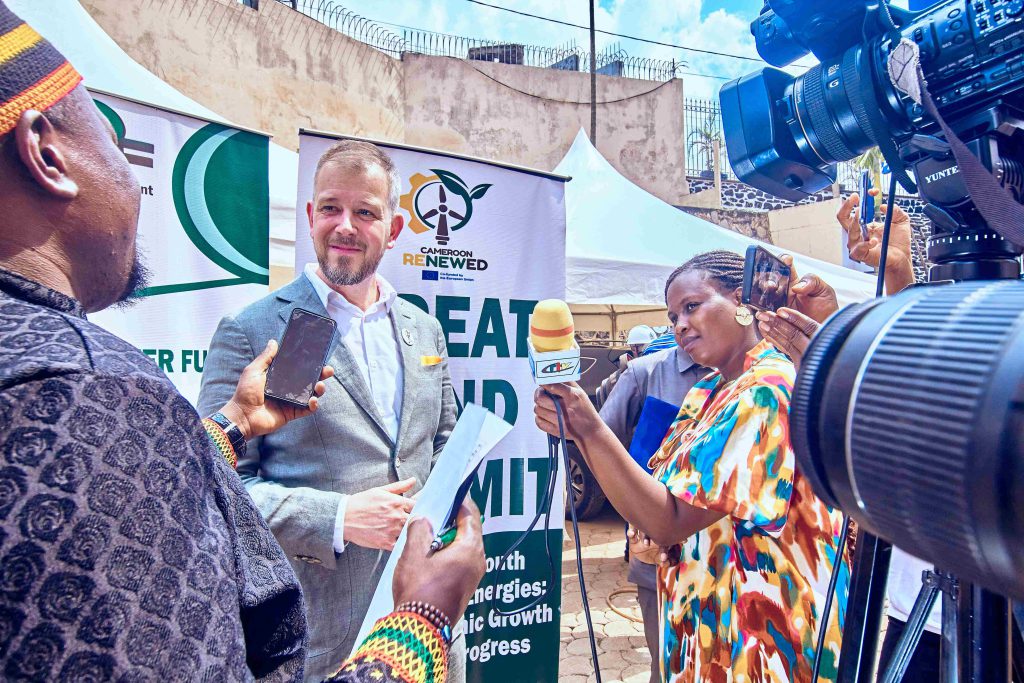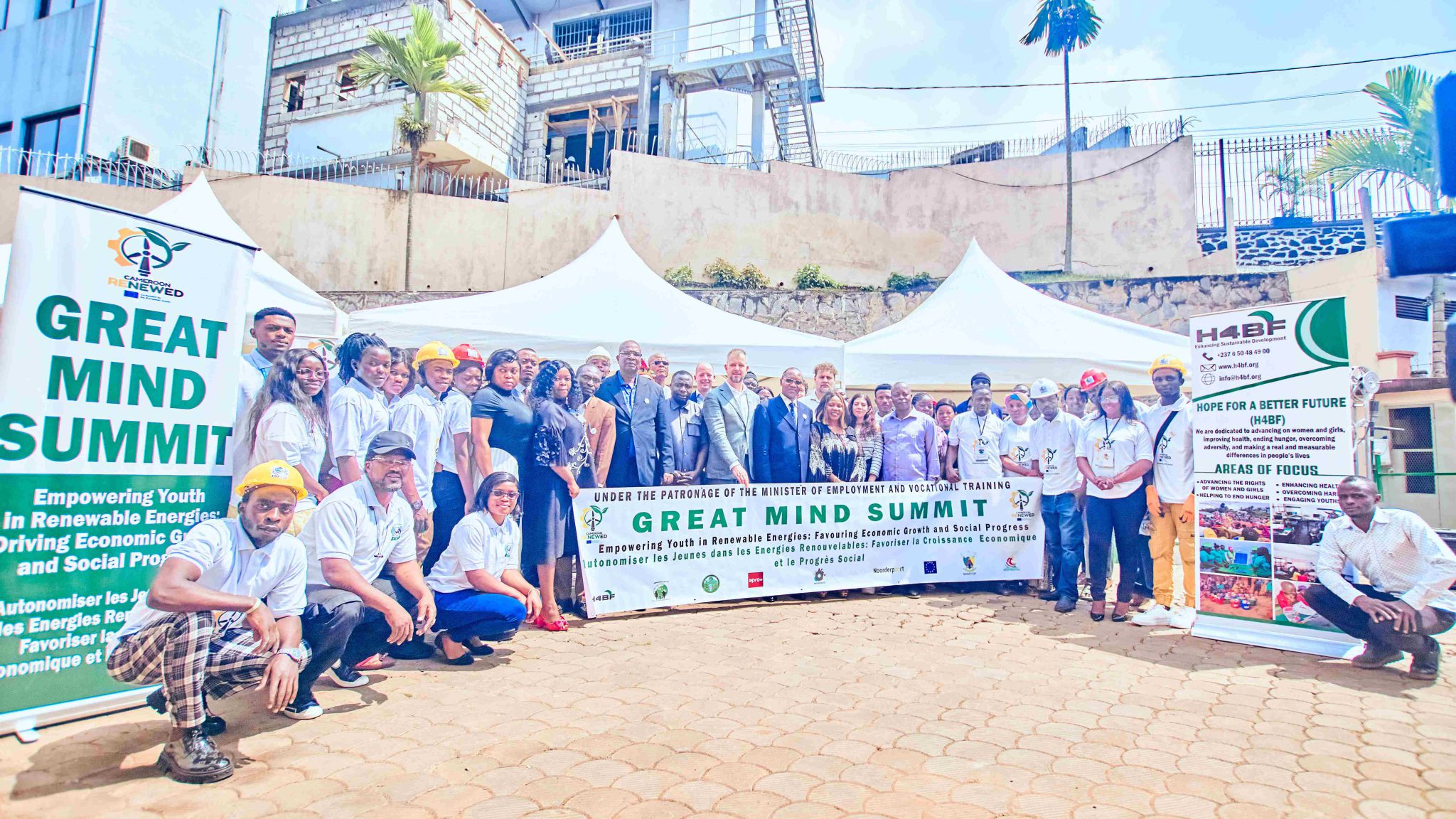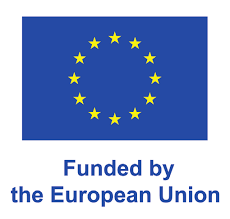Cameroon RenewED: Driving Sustainable Change through Education
Geert Nanne Bruining (Noorderpoort), Ngo Abdulai Banfogha (H4BF/HOBEFI), Alessia Ricardi (Apro Formazione)
MasterPeace is proud to be a partner in the Cameroon RenewED project. The demand for sustainable energy solutions has never been more urgent, and Cameroon is rising to the challenge with an innovative approach. The EU co-funded Cameroon RenewED project united three European organisations—Noorderpoort (Netherlands), APRO Formazione (Italy), and MasterPeace (Netherlands)—with three Cameroonian partners—Hope for a Better Future, FAP NGO, and SOPISDEW. The Capacity Building project aimed to reshape vocational education and training by embedding renewable energy expertise in solar, wind, and hydro energy into the national educational framework. Since its launch in January 2023, the project’s aim has been to bridge gaps between education, the labour market, and governance by training VET teachers and students, developing innovative renewable energy modules, and fostering entrepreneurial skills. Through hands-on “train-the-trainer” programs, (online) exchanges, and collaboration with local stakeholders, the project laid the groundwork for long-term impact

Empowering Gen Z: Skills for the Green Economy
At the heart of Cameroon RenewED is its focus on empowering the next generation. The project has trained 358 students at HOBEFI in practical skills for renewable energy system design, installation, and maintenance, complemented by entrepreneurial training. Under the guidance of 25 local mentors, students developed personalized business plans, positioning them as not just job seekers but job creators in Cameroon’s transition to a green economy.
Remarkably, 60% of participants are young women, breaking barriers in the traditionally male-dominated renewable energy sector. This focus on gender inclusivity not only empowers individuals but also challenges societal norms, paving the way for broader social change.
Bridging Education and the Labor Market
One of the project’s most significant achievements is its success in aligning VET with labour market demands. Partnerships with local businesses have provided students with real-world experience through internships and hands-on projects, ensuring their skills meet market needs. Additionally, the project developed and introduced renewable energy curricula, modernizing VET institutions and preparing students for emerging careers in the green economy. This integration has created a seamless pathway from education to employment, addressing Cameroon’s energy challenges while fostering sustainable development.


Overcoming Challenges
The project faced significant challenges, particularly regarding visa issues, which prevented most Cameroonian students and staff from participating in European exchanges. To adapt, an online exchange program was organized, where over 35 students from Groningen and Bamenda collaborated on renewable energy challenges in Cameroon. Their solutions were presented at the Great Minds Summits in Bamenda and Yaoundé.
For teachers and trainers, additional online “train-the-trainer” sessions were held, and an extra exchange to Cameroon was organized in June 2024. This exchange focused on entrepreneurial skills, bridging education and labour market gaps, and providing mentorship for educators. Simone Foglia of Apro Formazione, who led the social entrepreneurship training, reflected on the experience:
“The experience was great from both a human and a technical point of view. The entrepreneurship modules were warmly participated and the interaction was always high. Despite the technicalities of the project, the business sessions were absorbed with a more transversal approach, in order to foster socio-economic growth in possibly all areas and with an attention to social issues, and not only on financial aspects. Both students and trainers demonstrated a strong interest and willpower to experiment out of their comfort zones.”
External experts also joined exchanges in Cameroon, offering fresh perspectives and motivating both students and partners. These collaborations created lasting impact by deepening understanding of local contexts and inspiring innovation.
Celebrating Success: The Great Minds Summits
The success of Cameroon RenewED was highlighted in two Great Minds Summits, which brought together stakeholders, students, and partners to celebrate achievements and discuss the future.
The first summit, hosted by MINPSEESA in Bamenda, featured innovative student projects and discussions on their impact on regional development. The second and culminating summit was held in Yaoundé. Hosted by MINEFOP, it showcased 25 student-led renewable energy solutions, such as solar-powered irrigation systems and micro-hydro projects for rural electrification. High-level stakeholders, including government officials, private sector leaders, and UN agencies, engaged in discussions on policy alignment, funding, and the future of renewable energy in Cameroon.

Lasting Impact
The Great Minds Summit in Yaoundé marked the conclusion of this project. Cameroon RenewED’s achievements include training over 350 students, developing teaching modules, establishing strong(er) links with businesses and regional and national stakeholders, meanwhile empowering young women to participate in the program. With these foundations in place, Cameroon RenewED is set to deliver lasting benefits to Cameroonian communities through sustainable education and social entrepreneurship.
For Geert Nanne Bruining, the project coordinator for Noorderpoort, the project changed his view on the potential of Capacity Building projects: “The Cameroon RenewED project did not just built capacity in VET in Cameroon, but also in Europe, as the project has altered the way we look at our education, work and lives at home, in the EU. We have all grown as partners and participants, and I would highly suggest to implement this aspect more in future CB-projects!”

Disclaimer:
Funded by the European Union. Views and opinions expressed are however those of the author(s)only and do not necessarily reflect those of the European Union or European Education and Culture Executive Agency. Neither the European Union nor the granting authority can be held responsible for them.
